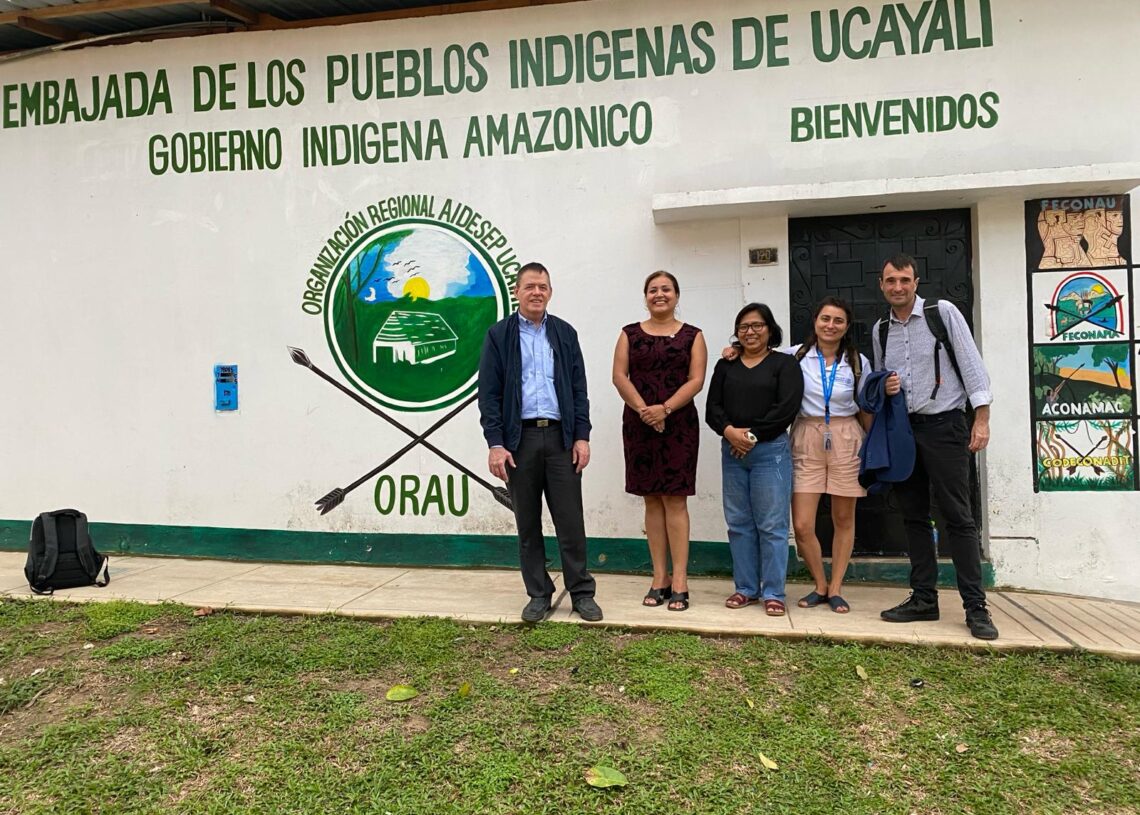The National Commission for Development and Life without Drugs-DEVIDA, the Peruvian agency responsible for drug policies, together with the Ministry of Justice and Human Rights and the support of COPOLAD, wants to strengthen existing coordination and monitoring mechanisms and promote an early warning system for threats to human rights or environmental leaders. It will be applied to remote regions with great potential for expansion of coca crops and convergence with other crimes (illegal logging and mining, human trafficking, etc.).
Víctor Martínez, COPOLAD III expert consultant, and Gorka Espiau, head of the LAC public policy innovation laboratory, have traveled to Ucayali. The objective is to adapt the defense system through processes such as listening, collective co-creation and with the ultimate goal of achieving prototypes that can be implemented and protect the population.
Mission in Ucayali
The mission took place in Peru, from February 23 to March 1, with representatives of DEVIDA and the Ministry of Justice and Human Rights, authorities and technicians from the Ministry of Culture, the Governor’s Office and the regional Prefecture, the Provincial Prosecutor’s Office, the Ombudsman’s Office, and Indigenous Peoples’ Organizations. Also participating were institutions that work in the surveillance and protection of protected natural areas (SERNANP) and the Office of the United Nations High Commissioner for Human Rights, as well as indigenous leaders, human rights defenders and the Flor de Ucayali Native Community. The participants in this pilot experience are beneficiaries of several alternative development projects, which train small-scale farming families in the sustainable cultivation of products adapted to local conditions, such as fish farming or cocoa crops, and receive support from the State for the commercialization of their products.
The COPOLAD III team also participated, together with DEVIDA, MINJUS and its Zonal Offices, in the first intersectoral Regional Roundtable of Ucayali for the Protection of Human Rights Defenders, and held exchanges with representatives and technicians of the Delegation of the European Union in Peru, representatives of the EU Project “EU Law Enforcement Support in the Fight against Drugs and Organized Crime in Peru (coordinated by FIIAPP),the National Police and other cooperation agencies (USAID, NGOs, INL, etc.), with programs and actions in the proposed pilot area.
Laboratories in Chile and Colombia
COPOLAD III is committed to innovation in its approach to cooperation and technical assistance to the countries and is carrying out two other laboratories focused on drug policies. The first, which began in the region of Maule, Chile, seeks to find solutions for drug prevention among minors in foster care. The second, which is being developed in vulnerable communities in Cali and Bogota (Colombia), focuses on the search for alternatives to micro-trafficking and consumption for young people and families in situations of social vulnerability.






